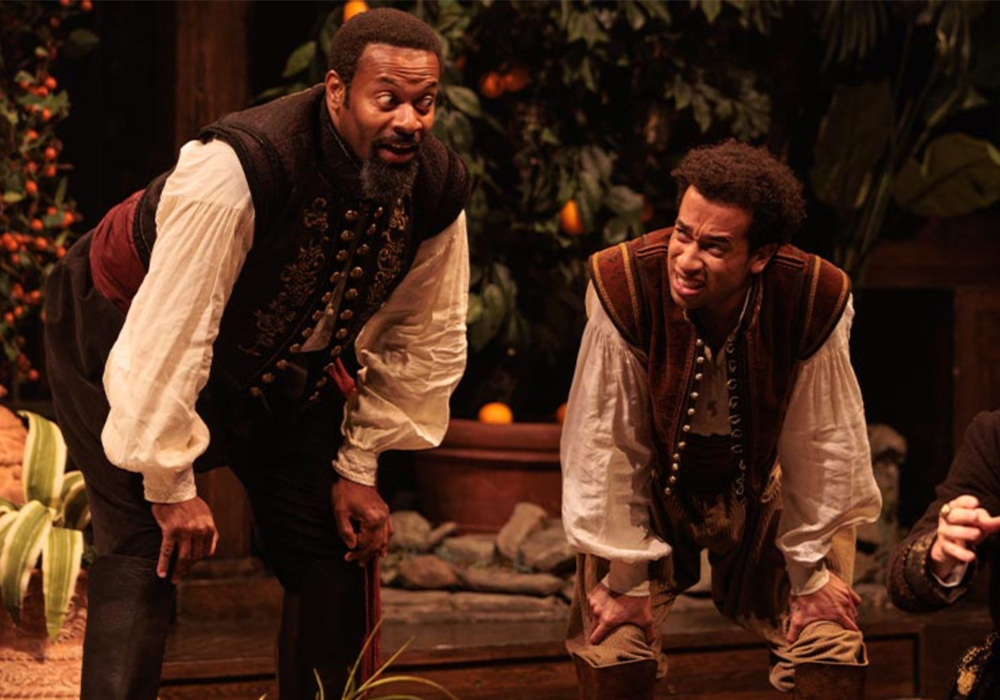An interview with two actors currently on stage at the Stratford Festival's 2023 season. They're performing in two plays: Much Ado About Nothing as well as King Lear. Austin Eckert is a Nigerian-Canadian actor from Regina, Saskatchewan. He went to college in Victoria, BC, at the Canadian College of Performing Arts. He has been working in theatre, film and television for the past eight years. This is his second season at Stratford. Also joining the conversation is Andre Sills. Andre is a Guyanese-Canadian veteran actor and producer. This is his ninth season at Stratford since his debut in 2005. He's a graduate of George Brown College's Theatre program.
During the course of this engaging exchange, we delve into the pressures of striving for excellence at all times and the dream of being allowed to fail in a world where tokenism has too often straight-jacketed the evolution of Black stage performers.
Topics and outtakes from our podcast conversation:
The Importance of Humanizing Black Actors in Shakespeare: "I know for me, as a Black man, that what my human experience comes first as that. And so when I'm on the stage, I'm not trying to be anything other than I am. And I guess because I know what it was like before, any sort of opportunity that is given is huge. And I think the biggest conversation throughout the pandemic is, or I guess just because of George Floyd and so on, whether people see us as human beings. And I think finding a way to take that stage each and every time that I can tap into the humanity that Shakespeare really taps into is an opportunity to really bridge that."
— Andre Sills 00:18:4000:19:19
The Pressure of Showing Up: "I think it's a serious shame that there is no mediocrity allowed if black folks are showing up. You have to be excellent. You have to be top tier. Otherwise, yeah, what are we doing here?"
— Austin Eckert 00:24:3200:24:44
The Conservatory Experience: "It was a different time back in, well, I guess a different time back in 2005. The scene was very different; it was very white, and what was it for? Highlander, where they say there can only be one. There was a bit of that mentality. So it was interesting to kind of be around other people of colour and then just be like, which one of us is it going to be? Which one of us is going to be? And so, I don't know, it was a little bit more of a contentious time because it didn't really feel like there was room for us at the time."
— Andre Sills 00:08:2000:09:09
Representation in Theater: "I'm not sure I would have had that opportunity ten years ago."
— Austin Eckert 00:15:0400:15:09
The Importance of Parental Guidance in Shaping Identity: "And I think that's just one of those things that I grew up with, is that even my mom, as I'm leaving the house every day, being like, remember whose child you are, remember who you represent, and things like that, the world looks at you differently."
— Andre Sills 00:24:5700:25:17
Diversity and Progress in the Theatre: "And even hearing Andre's story just now reminds me that I am standing on his shoulders, Michael Blake's shoulders, these guys who were around when it was tokenism at its height."
— Austin Eckert 00:14:3100:14:45
The Power of Reimagining Shakespeare: "But as I'm talking about the life experience and how Shakespeare taps into the humanity, humanity isn't just England. You know what? British Shakespeare comes with a certain style. And know, I think there are certain directors, especially from that area, who are of the mindset that each and every line has an emphasis in a particular way, whereas I don't know, it's understanding that, but then also finding a way to tap into your own personal meter and then letting it roll."
— Andre Sills 00:27:0000:27:51
About Much Ado About Nothing
FESTIVAL THEATRE
MAY 29 – OCTOBER 27
BY WILLIAM SHAKESPEARE
ADDITIONAL TEXT BY ERIN SHIELDS
DIRECTED BY CHRIS ABRAHAM
House Program: Much Ado About Nothing
Runtime: Two hours and 53 minutes, including one 20-minute intermission.
About King Lear
FESTIVAL THEATRE
APRIL 24 – OCTOBER 29
BY WILLIAM SHAKESPEARE
DIRECTED BY KIMBERLEY RAMPERSAD
House Program: King Lear
Runtime: Two hours and 53 minutes, including one 18-minute intermission.







Comments powered by CComment